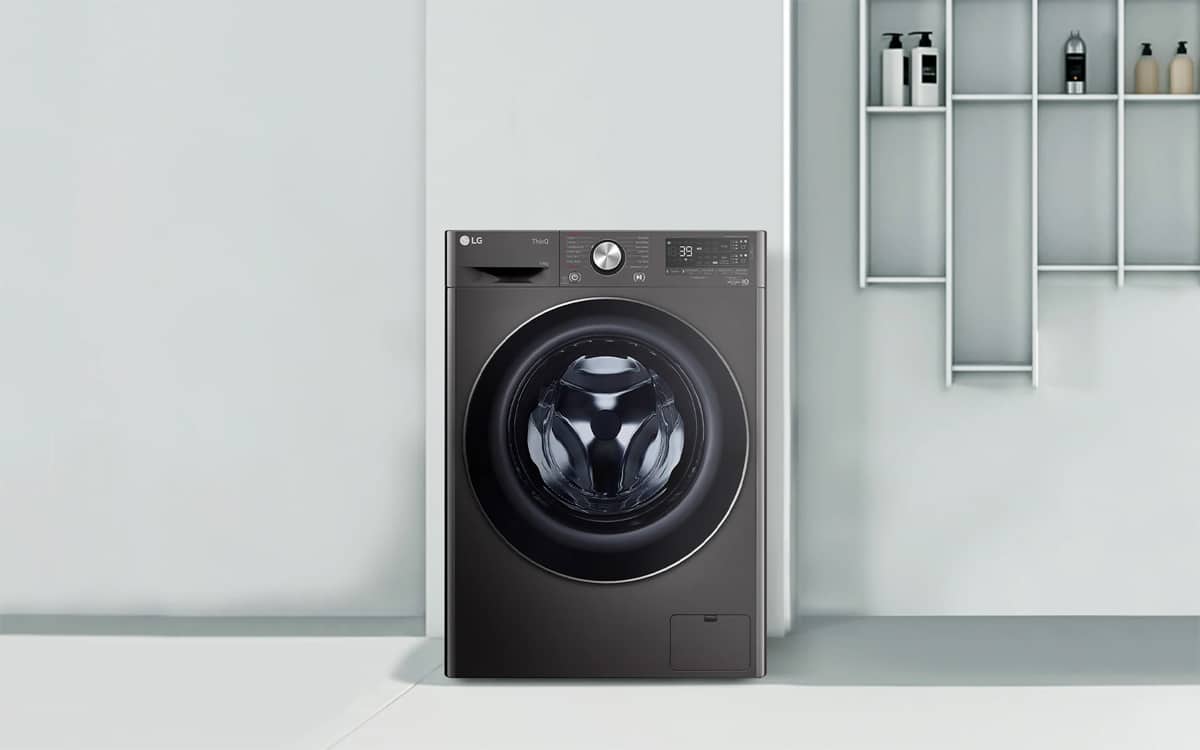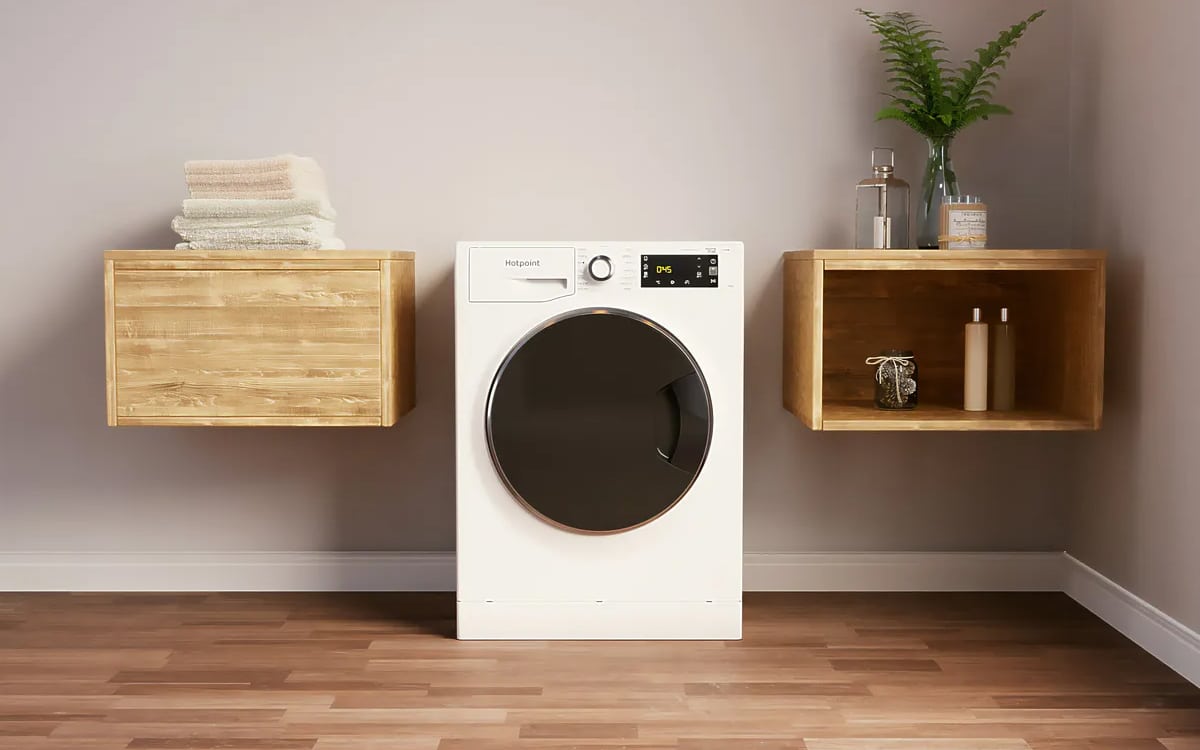It can seem like a herculean task to reduce the energy usage of your washing machine. After all, even the most average of cycles is bound to need a lot of energy to lift stubborn dirt and stains from your favourite clothes.
So how do you actually go about saving money when using your washing machine? Is it possible? Or will you have to resort to washing all of your clothes by hand?
Want to keep making use of your handy washing machine, while cutting down on your energy bills? Keep reading down below! We’ve created this ultimate guide to efficient washing machine usage to help you stay on top of your finances and your laundry!
How Can You Save Money When Using Your Washing Machine?
Upgrade To An Energy Efficient Washing Machine
It might sound mad to suggest upgrading your washing machine in an article about saving money. However, upgrading your washing machine to a more efficient model can help you save hundreds of pounds every year!
To find energy-efficient washing machines, you’ll need to look out for the energy efficiency ranking label fixed to the side of the unit. You’ll recognize it by its rainbow chart ordered from “A” to “G”. Washing machines labelled with “A” are far more energy efficient, and use less energy to operate. Washing machines ranked closer to “G” will use more energy. Keep your eye out for “A” ranking washing machines. Especially if you want an appliance that will keep your clothes clean, without using excess electricity!
Modern washing machines have a hefty up-front cost. But it’s more than worth making that initial investment when you consider how much you will save in the long run! A more efficient washing machine will use less electricity with each cycle. This keeps your bills down each month!
Upgrading to an energy-efficient washing machine is a cost-effective measure in the long run. Your lower energy bills will help you to make back the cost of the unit itself!
It’s worth taking your time to consider the many options on the market. Most modern washing machines come with extra features such as weight sensors. These can detect how much laundry is placed into the drum, to only use the right amount of water. Or even eco-wash cycles that wash your clothes fully, all while using cooler water!
Wash At A Lower Temperature
Much of the energy used by washing machines is dedicated to heating up the water for washing! A quick and easy way to save money when using your washing machine is to lower the temperature of the water. We’d recommend setting it to around 30 degrees.
30 degrees is enough to cut down on energy use by almost half, while still having plenty of warmth for efficient washing. Cooler washes are great for performing your more ordinary washing tasks, such as your weekly clothes wash.
However, it’s important to keep in mind that cooler temperatures will be less effective at cleaning significantly soiled or germ-ridden laundry. If you need to clean more heavily used fabrics, such as sports kits, bed linens, or bath towels, it’s best to wash them all together in one big load, at a higher temperature. You can still use hot water with your washing machine, but it’s best reserved for the laundry that needs it!
When washing at cooler temperatures, we also recommend using bio laundry products where possible. Bio laundry products contain special enzymes that can activate even in cool water. These enzymes are responsible for breaking down dirt found on your laundry! However, if you are washing laundry for an individual with sensitive skin, it’s recommended to avoid using bio laundry products.
Use Eco-Wash Settings
Eco-wash settings are specifically programmed to use less water, at lower temperatures, throughout an entire cycle. True to their name, these settings are great for the environment and very friendly to your wallet.
When it comes to eco-wash modes, slow and steady truly wins the race. In order for your laundry to be cleaned fully, the machine will need to take its time, thanks to the lower-temperature water.
While you might not save time with an eco-wash, it is an incredibly efficient way to clean up massive laundry loads while using less energy.
Wash Later In The Evening
If you’ve been on the hunt for cost-cutting washing machine tips, you’ve likely heard rumours that it costs less to wash at certain times of the day! Luckily, there is actually some truth to these rumours!
If you’re something of a night owl, often up into the later hours of the evening, then we’d recommend setting your washing cycle off after 10 PM. We do not recommend setting your washing machine off and heading to bed. Lest you want to wake up to soggy and bacteria-infested laundry! However, washing at the later hours of the night can help you save a lot of money.
Between 4 PM to 7 PM, when people are clocking off from work and reclining in front of the TV, electricity usage is at its peak. You should try to avoid performing a washing cycle between these times, as you’ll have to compete for power from the grid!
Wash Larger Loads Of Laundry
What’s the point of performing multiple small laundry tasks throughout the week, when you can simply save it all up for one cycle at the weekend? Performing two smaller cycles will use more energy than a single larger cycle. As such, larger laundry loads make much better use of the water, and help to lower your energy usage!
A single larger load will use far less electricity than two smaller laundry loads. It’s always best to build up a laundry load for washing, to make the most of every drop of warmer water and to save money!
However, while it’s always good to make the most of your washing machine drum capacity, it’s important that you don’t over-stuff. Over-stuffing your washing machine will not only lead to an inefficient wash but might also damage the drum! You’ll know you’ve over-stuffed your washing machine if you can barely fit your hand into the drum amongst your laundry. There should always be enough space for the laundry to tumble around in the drum as the cycle is running.
Don’t worry if you have multiple larger laundry loads to take care of. It’s always best to perform a few extra large cycles than hundreds of energy-consuming smaller cycles!
Clean Your Washing Machine Regularly
It’s easy to assume that you don’t need to regularly clean your washing machine. After all, it’s constantly cycling around plenty of warm water and detergent! What could possibly lead the machine to become dirty?
However, it’s strongly recommended to fully clean your washing machine at least once a month. Even though you may not see it with the naked eye, bacteria and mould can very easily build up within your washing machine. Especially within the drum, where it often remains moist and warm after a cycle.
Even small pockets of detergent and other cleaning products can build up on the surface of your drum. When these dry up, they can latch themselves onto your clothes as they’re washed. This leaves them looking just as dirty as when you put them into the drum!
Luckily, cleaning your washing machine is easy. First, you’ll want to start a basic washing cycle, with nothing inserted into the drum. Run the machine with a normal cycle, with water preferably over 60 degrees. This is hot enough to kill bacteria and germs. Into the dispenser drawer, pour just a small amount of bleach, which will eat away at pockets of grime and bacteria!
Once you’ve run a basic cycle to wash the drum, all you need to do is wipe around the machine with a cloth and some warm soapy water. Wipe around in the drum, the dispenser drawer, and especially within the seal. Dirt and lint can easily gather in the door seal of your washing machine, so it’s important to check all of its many crevices!
Cleaning your washing machine regularly will help keep it working at its best, and ensure you don’t have to waste money on countless costly repairs!

Air Dry Wherever Possible
Washer dryers combine the convenience of washing machines and tumble dryers into one device. However, if you have one of these appliances, and you’re looking to save money, you should avoid using the tumble dryer function as much as possible.
Tumble dryers are heavy energy consumers. These ravenous appliances consume the most energy out of any other household appliance, so it’s best to only use them sparingly. Don’t use the tumble dryer function for every single washing load, instead, reserve it for those times when you need quick access to a specific outfit!
If the weather’s on your side, and the sun is shining, why not hang the laundry outside to dry in the air? The light breezes will also help to wick away odours that may have lingered after the cycle has finished! If it’s a little chillier, why not use an indoor drying rack and place it in front of your radiator?
Are Larger Washing Machines More Energy Efficient?
Larger washing machines with extra-capacity drums cost a lot more to purchase. But they’re great for cutting down on your washing loads and saving energy. If you’re living in a large household, then a larger washing machine is absolutely crucial. With more drum capacity, you’ll be able to pile in much larger laundry loads without hampering the efficiency of the unit.
However, you should make sure to grab a washing machine that isn’t too big. If your washing machine is too big, and you can’t fill it up sufficiently with each wash, you’ll be wasting a lot of water! Underfilling a washing machine can also cause the central motor to spin off balance, which will lead to some very costly repairs down the line!
Frequently Asked Questions
How To Save Money When Using A Washing Machine?
To save a lot of money when using your washing machine, you’ll want to make the most of every drop of water. Much of the electricity used by a washing machine is dedicated to heating up the water. You can save money by lowering the temperature, and filling your washing machine every time you use it! You can also save money by using slower but more efficient eco-wash modes.
Is A Quick Wash More Economical?
It’s always better to wash more laundry at once in a single cycle. But if you need to perform a wash for just a few items, then a quick wash may be just right. Quick wash cycles will perform a full wash in much less time, which results in much lower energy usage. It’s best for quickly refreshing a favourite outfit. We would not recommend using such a setting for cleaning significantly soiled laundry.
Does Washing At 30 Save Electricity?
Yes! If you need to perform basic weekly laundry tasks, then you might benefit from doing it at a cooler 30 degrees. 30 degrees is warm enough to not use up much electricity, while still cleaning your clothes. But if you need to clean dirtier laundry that may be susceptible to bacteria, we’d recommend washing at hotter temperatures, such as 60 degrees.
Is It OK To Wash Bedding At 30 Degrees?
No. We would recommend that you wash your bedding at 60 degrees or warmer. The reason for this is that bedding is likely to be ridden with germs and bacteria, due to their heavy usage. If you want to save energy while washing your bedding, we’d recommend washing it alongside other heavy-duty fabrics. Such as sports kits, towels, and underwear.





